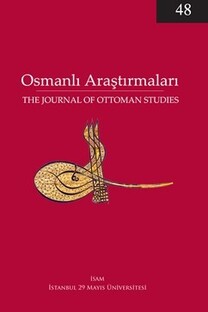Bevanda asiatica: Scholarly Exchange between the Ottomans and Europeans on Coffee
Focusing on Luigi Ferdinando Marsigli’s neglected treatise, Bevanda asiatica (1685), this article explores knowledge exchanges between the Ottomans and Europeans in the late seventeenth century. Bevanda asiatica was based on Hezarfenn Hüseyin’s encyclopedic entry on coffee as well as on Marsigli’s own experiences both as a naturalist and as a slave-cook in Ottoman lands. Marsigli stated that Hezarfenn’s empirically driven depiction of the coffee plant was “the most original source” on coffee. By analyzing how and why Marsigli selected Hezarfenn’s text, this article sheds light onto the practices of cross-cultural knowledge exchanges in the early modernity.
Anahtar Kelimeler:
coffee, early modern, Marsigli, Hezarfenn, knowledge exchange, , natural history, history of medicine
Bevanda asiatica: Scholarly Exchange between the Ottomans and Europeans on Coffee
Focusing on Luigi Ferdinando Marsigli’s neglected treatise, Bevanda asiatica (1685), this article explores knowledge exchanges between the Ottomans and Europeans in the late seventeenth century. Bevanda asiatica was based on Hezarfenn Hüseyin’s encyclopedic entry on coffee as well as on Marsigli’s own experiences both as a naturalist and as a slave-cook in Ottoman lands. Marsigli stated that Hezarfenn’s empirically driven depiction of the coffee plant was “the most original source” on coffee. By analyzing how and why Marsigli selected Hezarfenn’s text, this article sheds light onto the practices of cross-cultural knowledge exchanges in the early modernity.
Keywords:
coffee , Early modern, Marsigli, Hazerfenn, Knowledge Exchange, Natural History, History of Medicine, History of Science,
___
- Dufour, Sylvestre: Traitez nouveaux et curieux du café, du thé et du chocolate, Lyon, 1688.
- Fantuzzi, Giovanni: Memorie della vita del Generale co. Luigi Ferdinando Marsigli, Bo- logna: L. dalla Volpe, impress. dell’ Istituto delle scienze, 1770.
- ISSN: 0255-0636
- Yayın Aralığı: Yılda 3 Sayı
- Başlangıç: 1980
- Yayıncı: TDV İslâm Araştırmaları Merkezi
Sayıdaki Diğer Makaleler
Bevanda asiatica: Scholarly Exchange between the Ottomans and Europeans on Coffee
Research on the Türbe Complex of Suleiman the Magnificent in Szigetvár and its Fortification
Vural Genç, Acem’den Rum’a Bir Bürokrat ve Tarihçi: İdris-i Bidlîsî (1457-1520),
1455 Tarihli İstanbul Tahrir Defteri’nin Kayıp Sayfaları
Osmanlı Matbuatında Acemler: Şirket-i Sahafiye-i İraniye
Yerel Reform – Horizontal Modernleşme: Erken Tanzimat Osmanlı Selanik’inde Karantina Uygulaması
